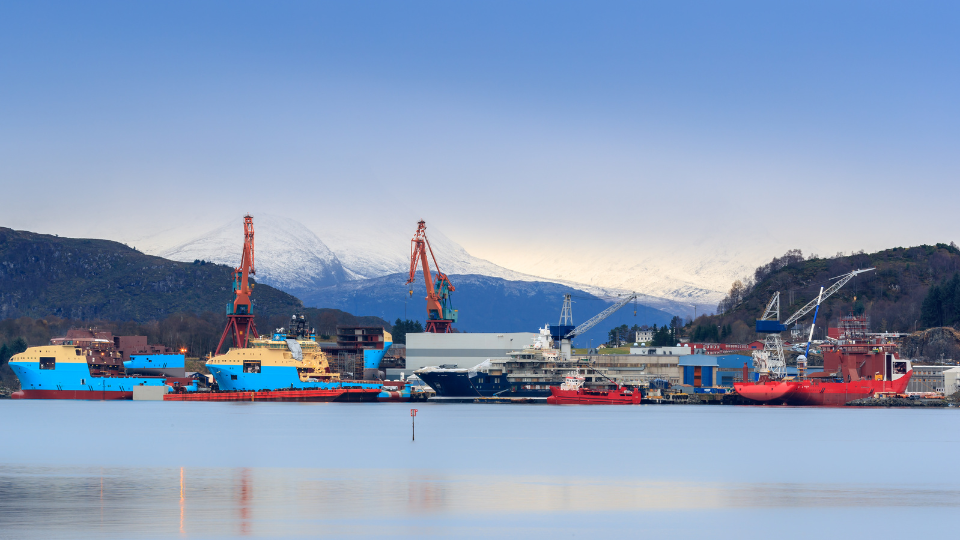If we want to improve the offshore industry, we need collaboration on vessel decarbonization that is underpinned by transparent, standardized data.
The Forum for Decarbonising the OSV Industry recognized two important, interrelated elements to successful decarbonization: data and collaboration in its recent white paper titled 10 Principles to Decarbonise the OSV Industry.
These two elements of change, of digital and environmental transformation, offer the same power to the OSV industry as they do to all of the shipping.
Data facilitates collaboration on vessel decarbonization
The white paper emphasizes the importance of data, with a call for documented emissions reductions to become part of chartering decisions. Vessel owners are advised to upgrade to automated performance monitoring that produces transparent, standardized data. The authors write: “Standards for reporting create a common language for measuring and comparing performance against expectations. It is imperative to set standards for what should be measured to track meaningful progress in decarbonization.”
Opsealog agrees: if you can’t measure it, you can’t prove it and can’t improve it.
Data from onboard sensors and systems can provide unprecedented insights into a vessel’s operations, which helps identify trends and pain points. Once analyzed, data can inform practical actions that can be taken to improve efficiency and reduce emissions.
To achieve this, companies must adopt a smart and strategic approach to data collection and reporting where seafarers are fully involved. Software solutions for daily reporting onboard vessels should not add to seafarer workload by forcing them to replicate data collected across multiple interfaces. The software should facilitate and optimize data entry, and also mitigate errors. The data should then be integrated and shared automatically, saving time and mitigating the risk of errors for shoreside personnel as well.
Project planning should include an analysis of data redundancy. To have a homogeneous reporting framework that will work across different departments in an organization, stakeholders need to agree on a common vocabulary and set of definitions. For example, this means having a common definition for terms such as ‘cargo’, ‘incident’, ‘delay’ or ‘stand-by’. Stakeholders can then agree on precisely what data is to be gathered and reported.
Therefore, the reality is that digital tools are only one part of good data management. Digital technologies can then help reduce the time spent by crew members inputting data onboard. Still, if stakeholders fail to agree on which data should be collected and assessed, new reports will keep being created, and existing ones will not disappear. All stakeholders, therefore, need to reach a consensus on what data is needed and which key performance indicators (KPIs) should be used rather than just insisting that data is collected to support their own KPIs in isolation from others.
Having done this, the collected data enables companies to assess their starting point, identify inefficiencies and act on them. It gives them a factual account of their compliance with regulations and facilitates their reporting to the relevant authorities and stakeholders, including charterers.
Collaboration facilitates action
Collaboration is emphasized in the white paper to promote a culture of environmental accountability onboard. “When a vessel’s crew are engaged with and motivated by the issue of decarbonization, they are more likely to proactively implement operational measures to reduce vessel emissions on an ongoing basis,” the authors argue.
Opsealog agrees: as data takes a more prominent role, the human element remains fundamental, driving the development and implementation of digital solutions.
We must get together and discuss the realities on the ground, creating a true dialogue. As digital solutions are implemented, captains, charterers, and shipowners should be front and center. The importance of user experience cannot be overstated, and investment in design ensures that users feel comfortable and familiar with the different KPI reports provided to them by partners such as Opsealog.
We need to convince people who are currently managing their operations through spreadsheets to come on board with digitalization. We must listen to their concerns, understand their challenges, and make sure they realize that digitalization is there to support them, not the other way around.
This will create trust and enable a strong organizational culture where everyone is open-minded and willing to test new solutions and new methods of working. We need to accompany each company and user on their digital journey, even though they might have different starting points.
As performance management specialists, the human element is critical to our success. The expertise of the Opsealog team is essential for making sense of gathered data and understanding it in the specific context of our customers’ fleet and operational challenges. This is a key differentiator for Opsealog – we are more than just a software company. We combine onboard e-reporting software, data integration, and human expertise.
Forward momentum
Digitalization, like vessel decarbonization, is a long-term strategy – and in both cases, early action is essential. While the industry is currently focused on short-term efficiency and operational improvements, adopting new low-carbon fuels will be gradual. All elements of the transition must be accompanied by robust data to measure consumption and emissions. Data is essential to understanding the advantages and disadvantages as each step is taken along the way.
While it might be tempting to think that digital solutions are plug-and-play and can deliver results instantly, the transformation goes beyond software, deep into the industry’s culture – from data to collaboration and positive action.

